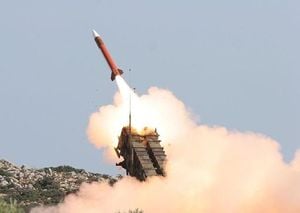The 2025 season of the Pakistan Super League (PSL) has been postponed indefinitely as tensions between India and Pakistan escalate. The Pakistan Cricket Board (PCB) announced the decision on Friday, May 9, 2025, just hours after revealing plans to shift the remaining matches of the tournament to the United Arab Emirates (UAE). This unprecedented move highlights the impact of ongoing military conflicts on sports in the region.
Originally, the last eight fixtures of the PSL were scheduled to take place in Rawalpindi, Multan, and Lahore. However, following the advice of Prime Minister Mian Muhammad Shahbaz Sharif, the PCB decided to prioritize national sentiment and security over the tournament's continuation. In a statement, the PCB remarked, "The decision to postpone has been taken pursuant to advice received from the Prime Minister who has kept in view the reckless aggression from India that has escalated to a point where national attention and sentiments are rightly focused on the courageous efforts of the Armed Forces of Pakistan who are vociferously upholding the sovereignty of our beloved Pakistan."
This decision follows a series of disruptions in the cricketing calendar, with the PSL facing significant challenges. Earlier, on Thursday, May 8, 2025, the match between Karachi Kings and Peshawar Zalmi in Rawalpindi was suspended, and no PSL matches have been held since Wednesday, May 7, 2025. The situation is compounded by the suspension of the Indian Premier League (IPL) for a week due to the same escalating tensions. The Board of Control for Cricket in India (BCCI) announced this suspension as a precautionary measure.
In the wake of these developments, the PCB expressed solidarity with the families of the martyrs and the security personnel defending the nation. They stated, "The PCB and its players stand resolutely in solidarity with the families of the martyrs and our security personnel defending the nation." This sentiment resonates deeply in a country where cricket is more than just a sport; it embodies national pride and unity.
However, the PCB's request to host the remaining PSL matches in the UAE may face hurdles. Reports indicate that the Emirates Cricket Board, which maintains a cordial relationship with the BCCI, is unlikely to approve the PCB's request. This adds another layer of uncertainty to the future of the PSL, as the board navigates the complex political landscape affecting sports.
The PSL is a significant event in the cricket calendar, showcasing local talent and international stars alike. The tournament has garnered a loyal fanbase and serves as a platform for players to shine on the international stage. The postponement not only affects the players and teams but also the fans who eagerly await the thrill of live cricket.
As the cricketing world watches closely, the implications of these political tensions extend beyond the PSL and IPL, raising questions about the future of cricket in South Asia. The region has a storied rivalry, and the current situation serves as a reminder of how external factors can disrupt the joy of sports.
With the PSL now on hold, the focus shifts to how both the PCB and BCCI will navigate this challenging period. Will the PSL be able to resume in the UAE, or will the ongoing political climate force a complete reevaluation of the tournament's future? Fans and stakeholders alike are left to ponder these questions as they await further announcements.
In conclusion, the postponement of the PSL amid rising tensions is a significant development, reflecting the intersection of sports and politics. As the situation evolves, the hope remains that peace will prevail, allowing cricket to unite rather than divide. For now, the cricketing community stands in solidarity, hoping for a resolution that brings the joy of the game back to the forefront.




